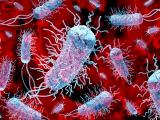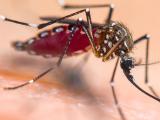Nov 30, 2010
USDA issues E coli O26 beef sampling notice
The US Department of Agriculture (USDA) Food Safety and Inspection Service (FSIS) today issued an advisory for inspectors on how to collect samples in the event that illnesses with Escherichia coli O26 are linked to ground beef. Federal officials routinely test only for E coli O157:H7, but USDA officials have signaled that they may soon be monitoring for six non-O157 strains of Shiga-toxin-producing E coli that are known to be pathogenic in humans, including O26. Regulators have lacked tests to rapidly detect the strains, but earlier this month a USDA official told meat producers that the USDA has so far validated tests for four of the strains. In August Cargill Meat Solutions Corp., based in Pennsylvania, recalled 8,500 pounds of its ground beef after Maine and New York officials linked the product to an E coli O26 illness cluster. In today's notice the FSIS advises inspectors to follow sample
collection procedures similar to those for E coli O157:H7.
Nov 30 FSIS notice
Nov 2 CIDRAP News Scan
Aug 30 CIDRAP News Scan
Florida reports second cholera case
A woman who moved from Haiti to the Orlando, Fla., area within the past month was diagnosed as having cholera and has recovered, raising the state's number of cholera cases to two, the Orlando Sentinel reported yesterday. Health officials from Orange County Health Department said the case was identified through Florida's disease surveillance system and that the US Centers for Disease Control and Prevention (CDC) analyzed samples from the patient and confirmed the infection. Florida is also investigating a possible third cholera case, reportedly in a doctor who got sick on a flight from the Dominican Republic. Health authorities have said they expect to see cases related to Haiti's cholera outbreak turn up in the United States. The risk of spread in the United States is low because of good sanitation conditions. Cholera typically spreads through contaminated water or food. Florida is home to a large Haitian population.
Nov 29 Orlando
Sentinel story
Dengue may cause long-term symptoms, autoimmune disturbance
More than half of patients who contracted dengue fever experienced symptoms in the 2 years after infection, as well as alterations in autoimmune markers, according to a new study. Cuban researchers observed clinical data from 68 patients who had dengue fever, 29 patients who had dengue hemorrhagic fever (DHF), and 42 who had asymptomatic infections. They found that 55 of the 97 symptomatic patients (57%) had persistent clinical symptoms following recovery from the initial infection, even as much as 2 years after contracting the disease. Such sequelae were more common among women, with 44 of 55 (80%) experiencing them. In addition, alterations in autoimmune markers occurred in 20 of a subset of 26 symptomatic patients (77%), which the authors said "could suggest an autoimmune-based disturbance."
Nov 29 Int J Infect Dis abstract

















